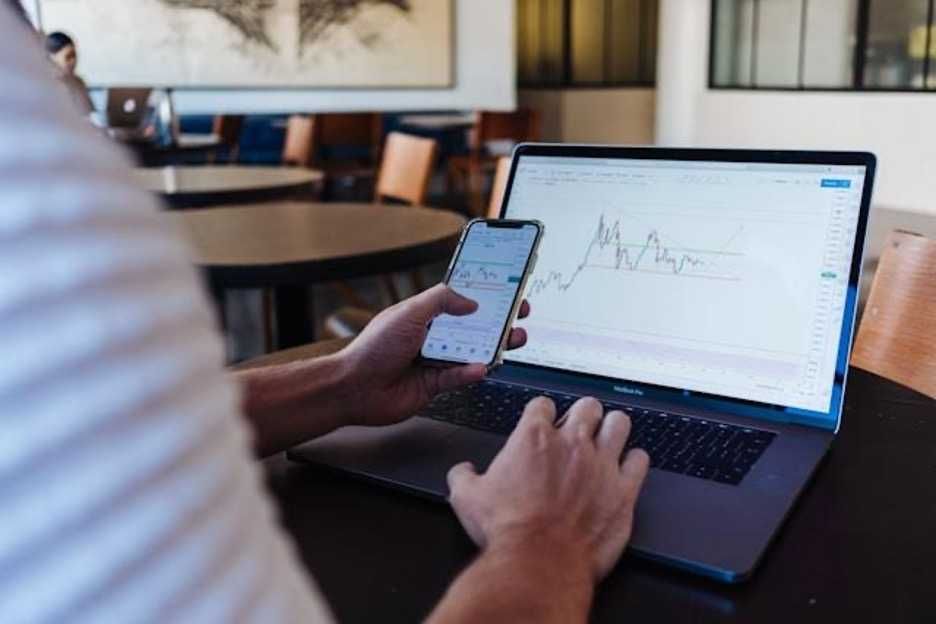What Is Forex Trading and Where Should Novices Start
Forex trading might sound complicated, but it's actually a straightforward concept that millions of people engage with daily. At its core, forex means buying one currency while simultaneously selling another. Think of it like exchanging pounds for euros before a holiday, except traders aim to profit from the constantly shifting values between currency pairs.
The forex market operates around the clock during weekdays, spanning major financial centers from London to New York to Tokyo. Unlike stocks, forex trades 24 hours a day, 5 days a week, and is not traded on a central exchange. This flexibility appeals to parents juggling work and family commitments, as positions can be opened during lunch breaks or evenings without waiting for traditional market hours.
Understanding the Forex Market
Forex trading involves buying and selling currencies in pairs. When you trade, you're essentially betting on one currency strengthening against another. The market operates around the clock during weekdays because different financial centres across the world trade in overlapping sessions. This means you can fit trading around your schedule, whether you have free time in the morning before the kids wake up or in the evening after they're in bed.
The most commonly traded pairs include EUR/USD, GBP/USD, and USD/JPY. These major pairs typically offer tighter spreads and better liquidity than exotic pairs involving emerging market currencies. For beginners, sticking with major pairs makes sense because they're less volatile and easier to research using mainstream financial news.
Spreads and Leverage
The spread represents the difference between the buy and sell price of a currency pair, and this is how most brokers generate their revenue. A tighter spread means lower costs for you. Spreads are measured in pips, which represent the smallest price movement a currency pair can make. Think of it as the hidden fee you pay with every trade.
Leverage allows you to control larger positions than your actual account balance by essentially borrowing from your broker. While this can amplify profits when trades go your way, it equally magnifies losses when they don't.
In the UK, the FCA has capped maximum leverage at thirty-to-one for major currency pairs to protect retail traders from excessive risk. This protective measure exists because leverage has historically been a double-edged sword that has wiped out many inexperienced traders' accounts.
Spot Forex Versus CFDs
When exploring platforms and brokers, you'll encounter two main ways to trade currencies. Spot forex involves directly exchanging one currency for another at the current market rate. Contract for Difference trading, however, means you're trading an agreement based on the price movement rather than owning the actual currency. Most UK brokers offer both spot forex and CFD trading, with CFDs being particularly popular because they provide flexibility across multiple asset classes.
The rise of user-friendly platforms has democratised access to these markets considerably. Modern trading technology, such as easy forex CFD trading with Axi, is now accessible to retail traders who previously wouldn't have had the infrastructure or capital requirements to participate. The key difference for you as a trader is that CFDs typically come with additional costs like overnight holding charges, while spot forex trades settle within two business days.
UK Regulation
The Financial Conduct Authority regulates forex brokers operating in the UK, maintaining strict standards for consumer protection and market integrity. Before opening any trading account, verify that your chosen broker appears on the FCA register with a valid licence number. The Financial Services Compensation Scheme protects eligible claims up to a certain threshold if an authorised firm fails.
This regulatory oversight means UK-based traders benefit from segregated client accounts, transparent pricing, and recourse through the Financial Ombudsman Service if disputes arise. Never trade with unauthorised firms, regardless of how attractive their promises might sound.
Taking Your First Steps
Start with a demo account that uses virtual funds to simulate real market conditions without risking your capital. This allows you to familiarise yourself with the trading platform, test strategies, and build confidence before committing real money. Treat your demo account seriously by practising with realistic position sizes that you'd actually use with real funds.
Set strict risk limits from day one. A common rule suggests never risking more than one or two percent of your account on a single trade. This discipline protects you during inevitable losing streaks and keeps you in the game long enough to develop profitable skills.
Avoiding Common Scams
The FCA warns that scammers often promise guaranteed returns or risk-free trading, with many targeting consumers through social media and search engines. Legitimate brokers never promise specific returns because forex trading carries inherent risks, and any firm making such guarantees should raise immediate suspicion.
Be wary of brokers who make withdrawals difficult, lack transparent fee structures, or pressure you to deposit more money. If something feels off, trust your instincts and walk away. The forex market will still be there tomorrow with plenty of legitimate opportunities.
Endnote
Forex trading requires education, patience, and realistic expectations. It's not a get-rich-quick scheme but rather a skill that develops over time with consistent practice and learning. For time-pressed parents juggling multiple responsibilities, the flexibility of forex markets can be appealing, but only if approached with proper preparation and risk management. Start small, learn continuously, and never trade with money you can't afford to lose.
